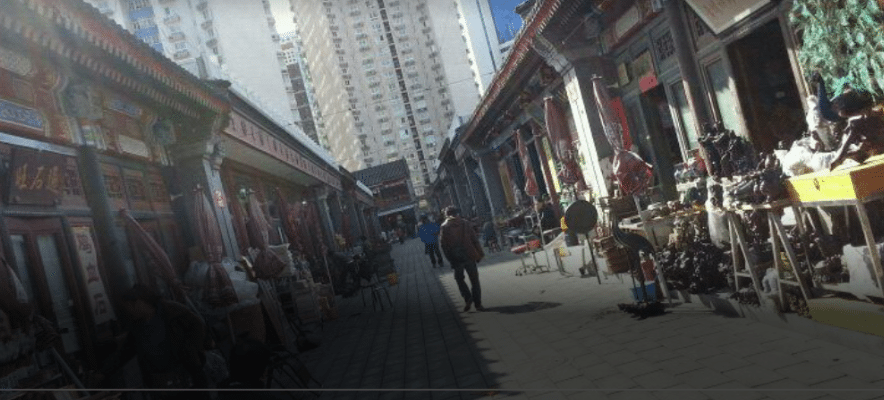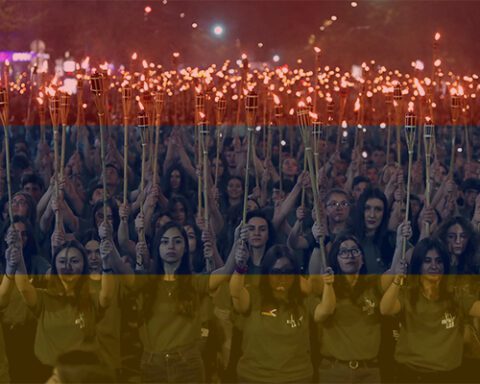|by John Sjoholm, Lima Charlie News
Some years ago, I was traversing the backwaters of Xinjiang, to study the particular fanatic strain of Islamism that can be found in that region. It was just before the Olympics and the Chinese attention to the Xinjiang province at the time was intensely fierce. Xinjiang has long represented the thorn in the side of stability and complete control for both the Chinese Government and the Muslim population in the country. It is the furthest North Western part of China, and shares borders with Kazakhstan, Kyrgyzstan, Tajikistan, and the southern parts of Pakistan. In recent years, the famous Karakoram Highway, noteworthy for its presence as the connection between China and Pakistan along the trajectory of the ancient Silk Road, has seen a military build up and, along with it, the border closure between the two countries.
Parts of the Xinjiang province are on such high elevation that, if you are not prepared for it and going in and out of shape low land conditions directly up to the peaks, you might experience some minor medical problems. On the upside, being so high up—as most veterans from the Afghan wars will tell you—and going up and down hills and mountains all day long—will do wonders for your overall physical shape. Xinjiang is, however, not just a wonderful place to get into shape; it is the home of the Islamic Insurgency in China.
One British journalist friend of mine quipped at one point that Xinjiang is China’s Waziristan and while I think that it is a likable exaggeration, I do believe that it is a telling one all the same.
I had spent two weeks in the region interviewing people and enjoying the fresh air—a luxury that one can not underestimate in China—before heading back to Beijing, from which I would later depart to return to my home (at the time) Vientiane, Lao. The train journey from the capital of the province, Ürümqi, to Beijing is listed as taking a “brisk thirty five hours,” but it is not bad at all. If you can afford the extra ten or so dollars for a better class carrier and a comfortable bed to sleep on, you will hardly even notice it.
Once I arrived in Beijing, I had four days to kill – which of course, in my usual mannerism, meant going to the cinema to catch up on the latest and to see if I could find some knickknack to put on the shelf back home. The latter brought me to the Panjiayuan market in Beijing, where I spent half the day perusing through the crummy items that were being passed off as ‘special’. Usually, even the items that claimed to be unique could be found at the booth next to the previous one for less. “Welcome to China,” as one shopkeeper told me, indeed.
Afterward, the pointless endeavor of trying to find something small, albeit somewhat classy, to go home with, I found myself standing outside of the market trying to get a taxi when an obviously drug riddled Chinese man approached me. He was holding one of the latest Nokia phones in his hands, and made it clear that he wanted to sell it.
Now, men are driven by three things – Ego, Sex, and Greed. Geekhood adds a fourth dimension to the whole—that is, ‘the greed of having more gadgets’. Now, I, being somewhat tired after the market, figured that if the phone powered up, it was probably just stolen and I could probably still use it while in Lao or back in the Middle East.
Indeed, it did power up – only to show a ‘low battery’ symbol shortly after, and turn off again.
I offered the man enough to cover his next four or five round trips to meet Joplin and Hendrix in dreamland, and walked off with the phone. Of course, he had not provided me with a charger.
I stopped at one of the huts outside my friend’s newly completed high rise apartment building, tastefully built right by the line of huts and other simpler dwellings for those that were not part of the financial elite of the booming economy, that sold electronics, and picked up the suitable cell phone charger.
As I got up to my friend’s place, where dinner was awaiting, I put the phone on charge – only to notice that nothing happened. I opened it up to make sure that the battery was okay. Indeed, the battery looked quite good, and like a legit Nokia battery pack.
Only thing I noticed was, when I inspected the phone closer, there was no copper connector inside the charge port. Curious. By sheer curiosity, I tried turning the phone on again, without the battery pack in it. Low-and-behold—the “low battery” indicator flashed on the screen once again.
Upon tearing the phone apart, I discovered that the whole thing consisted of a fairly well-made Nokia shell, some lead weights, a small watch battery pack, a circuit, and a screen that was able to display three static images; the boot-up image of two shaking hands, the standard “searching network” ready to go main display, and the low battery indicator. The little circuit made sure that they were shown in close sequence of one another.
Traveling is all about learning. If not about other cultures, and other people, then about yourself.
I learned that I was a greedy fool that day.
The phone resided for many years after that on my desk, as a reminder of my arrogance and how it had made me a fool that day. When I packed up and left the Middle East in 2012, it went into the trash. At that point it was probably the “phone” that I had kept the longest of all phones I have ever had—and I regret throwing it away.
John Sjoholm, Lima Charlie News
John Sjoholm is Lima Charlie’s Middle East Bureau Chief, Managing Editor, and founder of the consulting firm Erudite Group. A seasoned expert on Middle East and North Africa matters, he has a background in security contracting and has served as a geopolitical advisor to regional leaders. He was educated in religion and languages in Sana’a, Yemen, and Cairo, Egypt, and has lived in the region since 2005, contributing to numerous Western-supported stabilisation projects. He currently resides in Jordan. Follow John on Twitter @JohnSjoholmLC
Lima Charlie World provides global news, featuring insight & analysis by military veterans, intelligence professionals and foreign policy experts Worldwide.




![A Trump war crime pardon dishonors us all [Lima Charlie News]](https://limacharlienews.com/wp-content/uploads/2019/05/A-Trump-war-crime-pardon-dishonors-us-all-Lima-Charlie-News-480x384.png)

![Blossoming Russo-Turkish alliance leaves U.S., NATO behind [Lima Charlie News]](https://limacharlienews.com/wp-content/uploads/2019/07/Russia-Turkey-alliance-leaves-U.S.-NATO-behind-480x384.png)



